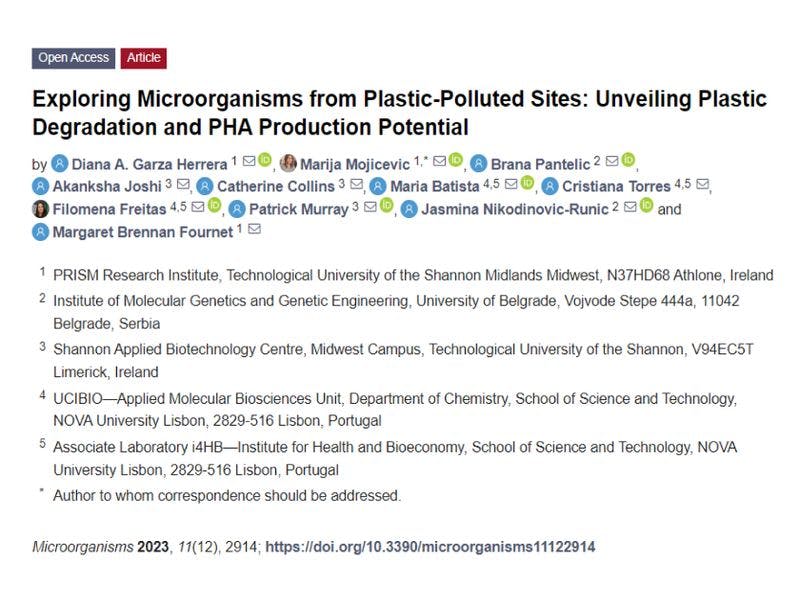Exploring Microorganisms from Plastic-Polluted Sites: Unveiling Plastic Degradation and PHA Production Potential

In this study, we delve into the plastic degradation potential of microorganisms isolated from sites with prolonged plastic pollution, such as plastic-polluted forests, biopolymer-contaminated soil, oil-contaminated soil, municipal landfill, but also a distinctive soil sample with plastic pieces buried three decades ago. In total, 150 strains were isolated and screened for the ability to use plastic-related substrates like impranil dispersions, polyethylene terephthalate (PET), terephthalic acid (TPA), and bis(2-hydroxyethyl) terephthalate (BHET). 20 isolates selected based on their ability to grow on various substrates were identified as Streptomyces, Bacillus, Enterococcus, and Pseudomonas spp. and 5 of them displayed the capability to produce polyhydroxyalkanoates (PHAs), utilizing pre-treated post-consumer PET samples and they can be further utilized for upcycling purposes, laying the foundation for the development of sustainable strategies for plastic waste management.
Read the paper here